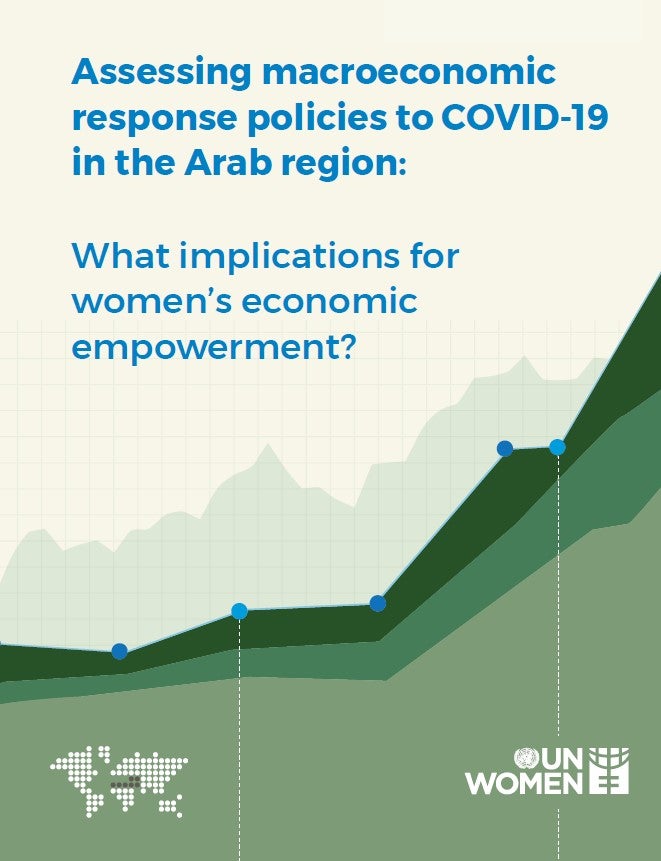
Assessing macroeconomic response policies to COVID-19 in the Arab region: What implications for women’s economic empowerment?

The objective of this regional assessment is to look at the implications of the macroeconomic response to the COVID-19 pandemic in the Arab region. The regional mapping allows for identification of the dominant trends and policy priorities across different areas of interventions and looks at the potential implications of [largely] gender-blind macroeconomic responses and investments during the first six months of the pandemic. The gender impact of these interventions is estimated, with a focus on labour market outcomes and livelihoods. The countries included in the report are: Algeria, Bahrain, Egypt, Iraq, Jordan, Kuwait, Lebanon, Libya, Morocco, Oman, Palestine, Qatar, Saudi Arabia, Syria, Tunisia, the United Arab Emirates, and Yemen. Data on the response packages is collected and classified along four major pillars of intervention to produce a mapping of the regional macroeconomic response policies up to the end of August of 2020: I. Employment and economic activity, ii. social protection, iii. social infrastructure and public services, and iv. Food security. Policies are classified into gender-sensitive versus gender-blind responses.